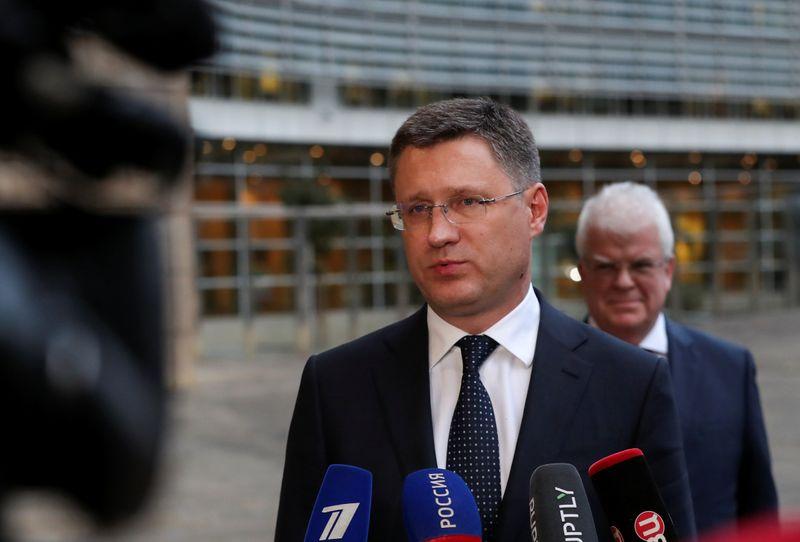MOSCOW – Russia’s energy minister said on Tuesday it was too early to discuss the future of global oil production curbs beyond December, less than a week after saying plans to reduce the output restrictions should proceed.

OPEC and allies including Russia, known as OPEC+, agreed in April they would gradually ease production cuts – introduced to support prices after a plunge in demand caused by the COVID-19 pandemic – with one phase of the easing set to begin on Jan. 1.
However, a second wave of infections has put a question mark over this timetable.
“It is too early to talk about the future of the OPEC+ deal beyond December,” Russian Energy Minister Alexander Novak said in comments to Reuters made via the ministry’s press service
“We need to understand” how the situation develops in the coming month before taking any decision, he added.
The ministry was replying to a request for comment on whether Russia might support keeping production cuts unchanged after 2020, as some industry sources had suggested.
Only last week, Novak said the Organization of the Petroleum Exporting Countries and its allies would ease output curbs as planned, despite a global spike in COVID-19 cases.
OPEC+ is next due to meet on Nov. 30-Dec. 1.
Russian President Vladimir Putin and Saudi Arabia’s Crown Prince Mohammed bin Salman, widely known as MbS, held two telephone calls last week, an unusual frequency of contact between them, as the OPEC+ ministerial summit fast approaches.
Kremlin spokesman Dmitry Peskov said regular contact was necessary as markets were volatile.
“The Russians are considering to support the rollover beyond December 2020 despite Novak’s statements about the plan of continuing the pact as it is now. All these Putin-MbS calls recently have not been for nothing, they are negotiating actively on the possible rollover,” one industry source said.
OPEC+ is cutting output by 7.7 million barrels per day (bpd) to help support prices and reduce inventories. It is due to reduce this to 5.7 million bpd from Jan. 1.
However, the International Energy Agency has said the second wave of COVID-19 is slowing demand and will complicate efforts by producers to balance the market.
Novak said on Monday the recovery in the market had been slowed by the second wave, while winter might bring more uncertainty due to a traditional decline in motor fuel demand.
Making a possible case for rolling over cuts, OPEC+ noted in a document that the balance between supply and demand might not be restored in 2021, under a pessimistic scenario.
A second government source said Russia, for now, would not disclose its plans on whether to continue with the current oil output cuts in order to prevent an overreaction in the market.
“The forecasts on the perspectives of the demand rising in 2021 are rather disappointing, it seems we will have to keep up the cuts,” the source added.
The Kremlin did not respond to a request for comment.
[contextly_sidebar id=”8bomN2wAsZWby8SbLVSAr86fBYjd12iw”]






